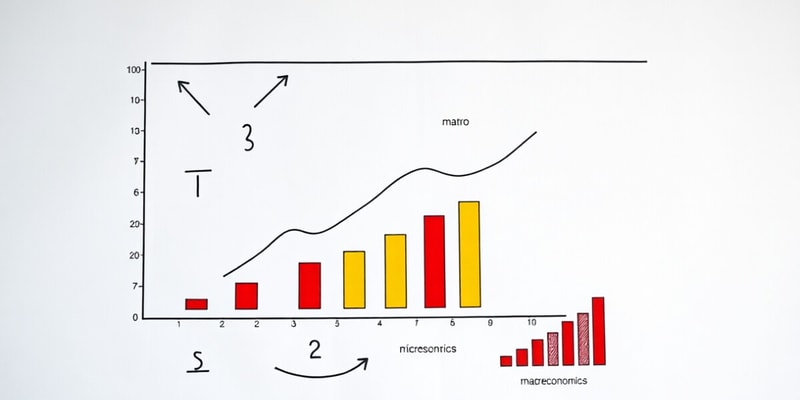Podcast Beta
Questions and Answers
What is economics?
The study of how societies make choices under conditions of scarcity.
What is microeconomics?
A detailed treatment of how individuals and firms make economic decisions.
What is macroeconomics?
The study of the economy as a system.
What is opportunity cost?
Signup and view all the answers
Scarce resources mean that their demand at a zero price would be greater than their available supply.
Signup and view all the answers
What does 'degrowth' refer to?
Signup and view all the answers
What is 'decoupling' in economics?
Signup and view all the answers
What does marginal decision-making involve?
Signup and view all the answers
What do we respond to in economic terms?
Signup and view all the answers
What are gains from trade?
Signup and view all the answers
Markets typically move towards inefficiency.
Signup and view all the answers
What is an efficient economy?
Signup and view all the answers
Competitive markets always lead to efficiency.
Signup and view all the answers
What occurs after market failure?
Signup and view all the answers
What do economists use to think analytically and objectively?
Signup and view all the answers
Study Notes
Economics
- Economics studies how societies make choices under scarcity, focusing on how societies decide what, how, and for whom to produce.
- Scarcity refers to a limited amount of resources relative to unlimited wants.
- The demand for a scarce resource exceeds its supply even at a zero price.
Microeconomics vs. Macroeconomics
- Microeconomics analyzes individual and firm-level economic decisions.
- Macroeconomics examines the economy as a whole.
8 Key Principles of Economics
- Resource Scarcity: Resources are limited, leading to choices and trade-offs.
- Opportunity Cost: The value of the best alternative foregone when making a choice.
- Marginal Decision-Making: Analyzing the effects of small changes in choices.
- Incentives: Rewards and penalties that influence behavior.
- Gains from Trade: Specialization and trade can lead to greater overall welfare.
- Market Equilibrium: A state where no individual can improve their situation by changing their actions.
- Efficiency: Achieving maximum output from a given set of resources.
- Government Intervention: Government policies can improve outcomes when market failures occur.
Principles underlying Economy-wide Interactions (Macroeconomics)
- Spending by one person becomes income for another.
- Total spending can deviate from the economy's production capacity.
- Government policies can influence overall spending.
Economic Thinking
- Economists analyze choices, evaluate costs, and understand relationships between events.
- The scientific method is used to analyze economic issues objectively.
Studying That Suits You
Use AI to generate personalized quizzes and flashcards to suit your learning preferences.
Related Documents
Description
Test your knowledge on the principles of economics and the distinctions between microeconomics and macroeconomics. This quiz covers key concepts such as resource scarcity, opportunity cost, and market equilibrium. Perfect for students looking to solidify their understanding of economic foundations.




